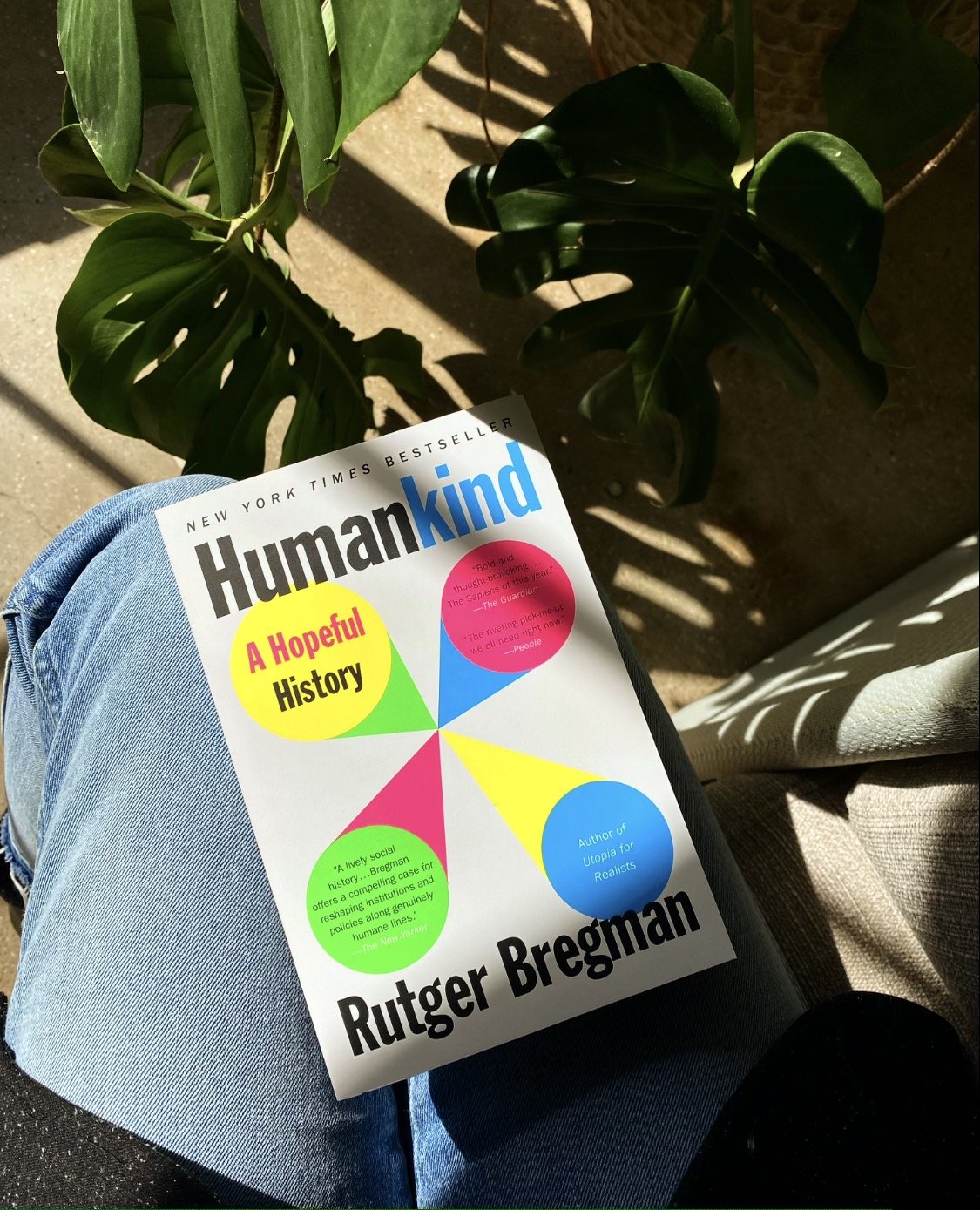Humankind: A Hopeful History
Humankind: A Hopeful History
By Rutger Bregman
Translated by Erica Moore & Elizabeth Manton
Little Brown and Company, Paperback, 2021
Add to cart for pick up at HudCo or local delivery
For nationwide shipping use Bookshop.org link at bottom of page
DESCRIPTION
The "lively" (The New Yorker), "convincing" (Forbes), and "riveting pick-me-up we all need right now" (People) that proves humanity thrives in a crisis and that our innate kindness and cooperation have been the greatest factors in our long-term success as a species.
If there is one belief that has united the left and the right, psychologists and philosophers, ancient thinkers and modern ones, it is the tacit assumption that humans are bad. It's a notion that drives newspaper headlines and guides the laws that shape our lives. From Machiavelli to Hobbes, Freud to Pinker, the roots of this belief have sunk deep into Western thought. Human beings, we're taught, are by nature selfish and governed primarily by self-interest.
But what if it isn't true? International bestseller Rutger Bregman provides new perspective on the past 200,000 years of human history, setting out to prove that we are hardwired for kindness, geared toward cooperation rather than competition, and more inclined to trust rather than distrust one another. In fact this instinct has a firm evolutionary basis going back to the beginning of Homo sapiens.
From the real-life Lord of the Flies to the solidarity in the aftermath of the Blitz, the hidden flaws in the Stanford prison experiment to the true story of twin brothers on opposite sides who helped Mandela end apartheid, Bregman shows us that believing in human generosity and collaboration isn't merely optimistic--it's realistic. Moreover, it has huge implications for how society functions. When we think the worst of people, it brings out the worst in our politics and economics. But if we believe in the reality of humanity's kindness and altruism, it will form the foundation for achieving true change in society, a case that Bregman makes convincingly with his signature wit, refreshing frankness, and memorable storytelling.
ABOUT THE AUTHOR
Rutger Bregman, a historian and writer at The Correspondent, is one of Europe's most prominent young thinkers. His last book, Utopia for Realists, which was translated into thirty-two languages, is a New York Times bestseller. He lives in Holland.
REVIEWS
An instant New York Times bestseller
"The Sapiens of 2020." --The Guardian
"Humankind made me see humanity from a fresh perspective." --Yuval Noah Harari, author of the #1 bestseller Sapiens
Longlisted for the 2021 Andrew Carnegie Medal for Excellence in Nonfiction
One of the Washington Post's 50 Notable Nonfiction Works in 2020 & Best Book of the Year
Picture Book x HudCo Book Club — Humankind: A Hopeful History
Open to all, registration req. Join us for a discussion (over wine) on this uplifting book that just might be what we all need.
Date and time
Wed, March 23, 2022
7:00 PM – 9:00 PM EDT
Location
HudCo
145 Palisade Street, Suite 200
Dobbs Ferry, NY 10522
About this event
Pick up your copy of Humankind: A Hopeful History at Picture Book, and read what you can before our Book Club Rebirth meeting on Wednesday, March 23, at 7pm, at HudCo. Here's what people are saying about the non-fiction piece:
"Fascinating . . . I enjoyed Humankind immensely. It's entertaining, uplifting, and very likely to reach the broad audience it courts . . . This book might just make the world a kinder place." ―Tristram Fane Saunders, Daily Telegraph
"To prove his hypothesis that humankind is basically good, he reevaluates some of the most entrenched cultural narratives suggesting otherwise... This intelligent and reassuring chronicle disproves much received wisdom about the dark side of human nature. Readers looking for solace in uncertain times will find it here." ―Publishers Weekly
"Bregman offers a fresh and optimistic perspective on humanity and our innate tendencies toward generosity and kindness. Backed by 200,000 years of human history, Humankind makes a convincing argument to seek out the best in others, rather than looking for the worst."―Kat Sarfas, Barnesandnoble.com


